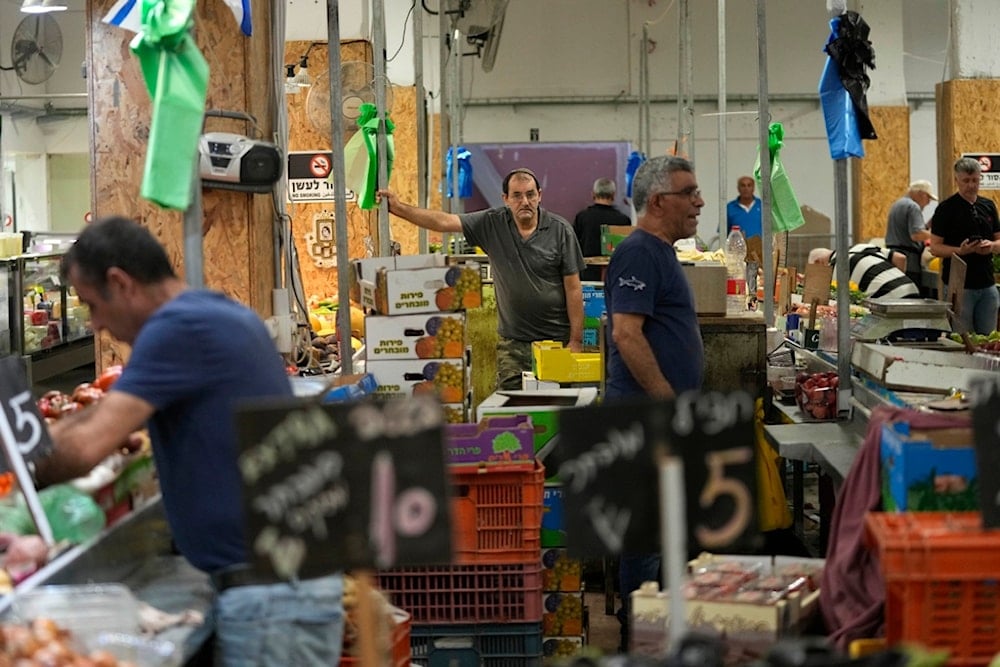'Israel's' inflation climbs above 3% target range amid mounting fears
As "Israel's" Consumer Price Index (CPI) rose by 0.6% in July, the annual inflation rate increased to 3.2%.
-

Vendors sell fruit and vegetables in a market in Haifa, occupied Palestine, Monday, Aug. 5, 2024. (AP)
"Israel's" Consumer Price Index (CPI) rose by 0.6% in July, pushing the annual inflation rate to 3.2%, above the Bank of Israel's 3% target, Israeli media reported on Friday.
Notable price increases included fresh fruit and vegetables (3.2%), culture and entertainment (1.8%), and housing costs (0.8%).
Clothing and footwear prices reportedly dropped by 2.4%, while furniture and household equipment fell by 0.6%.
The Israeli occupation's Central Bureau of Statistics also reported changes in home prices between April-May 2024 and May-June 2024, which are not part of the general CPI.
Furthermore, Israeli media reported that prices increased by 0.7% on average in July, the seventh straight month of rises after earlier declines.
Throughout occupied Palestine, prices increased by 1.5% in the north, 1.2% in Haifa, 0.7% in occupied al-Quds, 0.6% in the center, 0.5% in Tel Aviv, and 0.2% in the south. New apartment prices dropped by 0.9%.
Additionally, Israeli media underscored that year-over-year, the housing price index rose by 4.7%, with Haifa seeing a 9.7% increase, followed by 6.3% in the north, and smaller rises in other regions. Conversely, it was also reported that new home prices fell by 0.6%.
Israeli economy in chaos in anticipation of Iran, Hezbollah responses
The Israeli occupation's anticipation of Hezbollah and Iranian response to Israeli assassinations carried out in late July has pushed the regime into "economic chaos", Israeli media outlets reported.
The economic affairs commentator for Israeli broadcaster Channel 13 underlined that the past two weeks have "exhausted" the Israeli market. Several economic events were canceled in Israeli-occupied territories, while others were reduced due to the state of anxiety experienced among settlers.
Economic activities have also been affected by the operational measures issued by Israeli authorities, in preparation for retaliatory strikes by Hezbollah and Iran.
The Israeli commentator highlighted the significant losses that affected the Israeli tourism sector, largely linked to international flight cancellations to Israeli-occupied airports. An increasing number of Israeli settlers have been stranded in other countries due to the wide-scale cancelation of flights.
The possibilities of responses launched by the Axis of Resistance have also impacted hotels and other hospitality and tourism businesses in the northern Israeli-occupied territories, which may be directly affected by future strikes.
The commentator warned that these challenging conditions and operational measures, which are also impacting the medical and energy sectors, could persist well into September.
If the wait continues into next month, the Israeli educational sector will also be severely affected by operational measures, forcing institutions to "maneuver within combat scenarios."
Read more: 'Israel' experiencing tense days awaiting Iranian retaliation

 3 Min Read
3 Min Read










